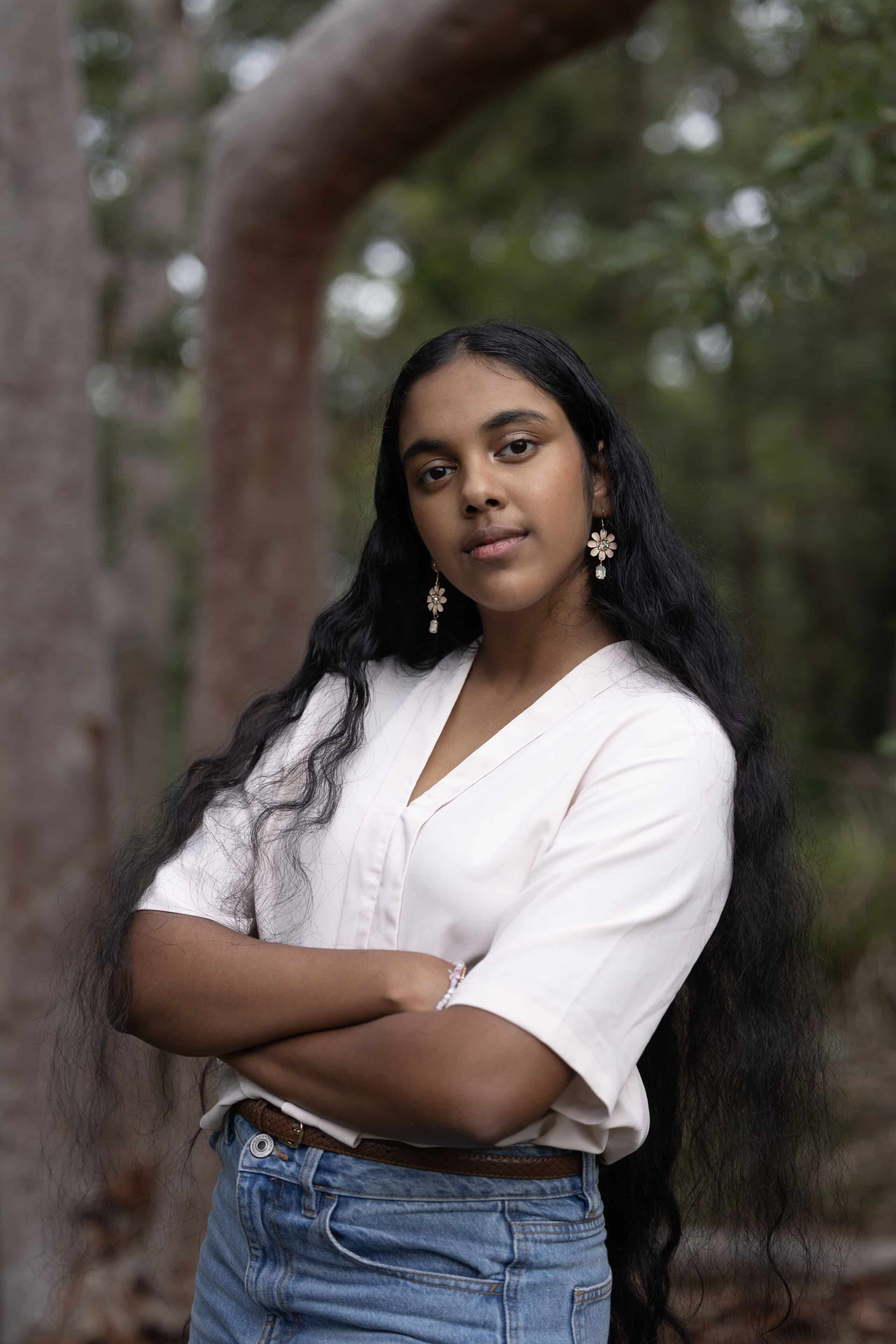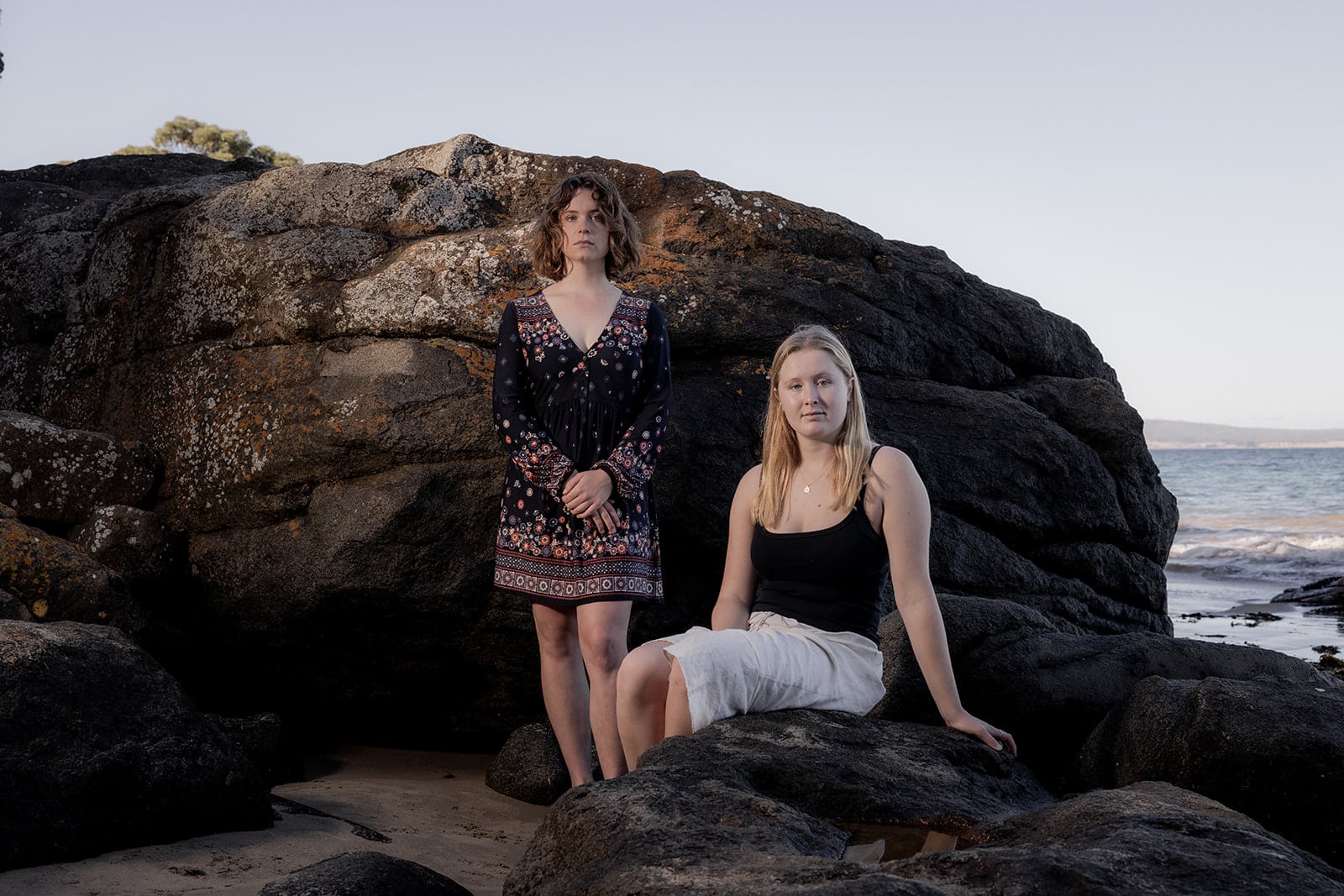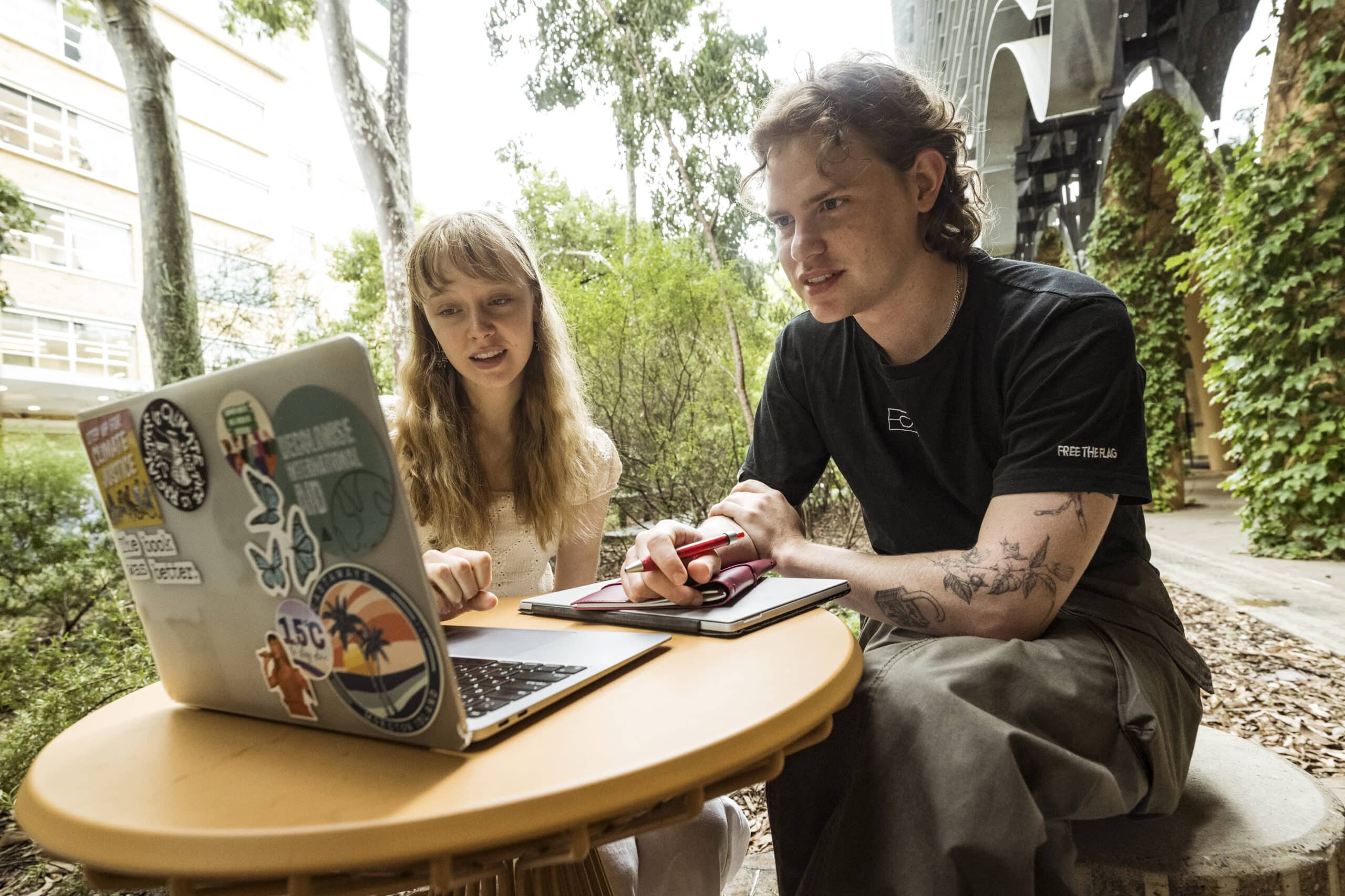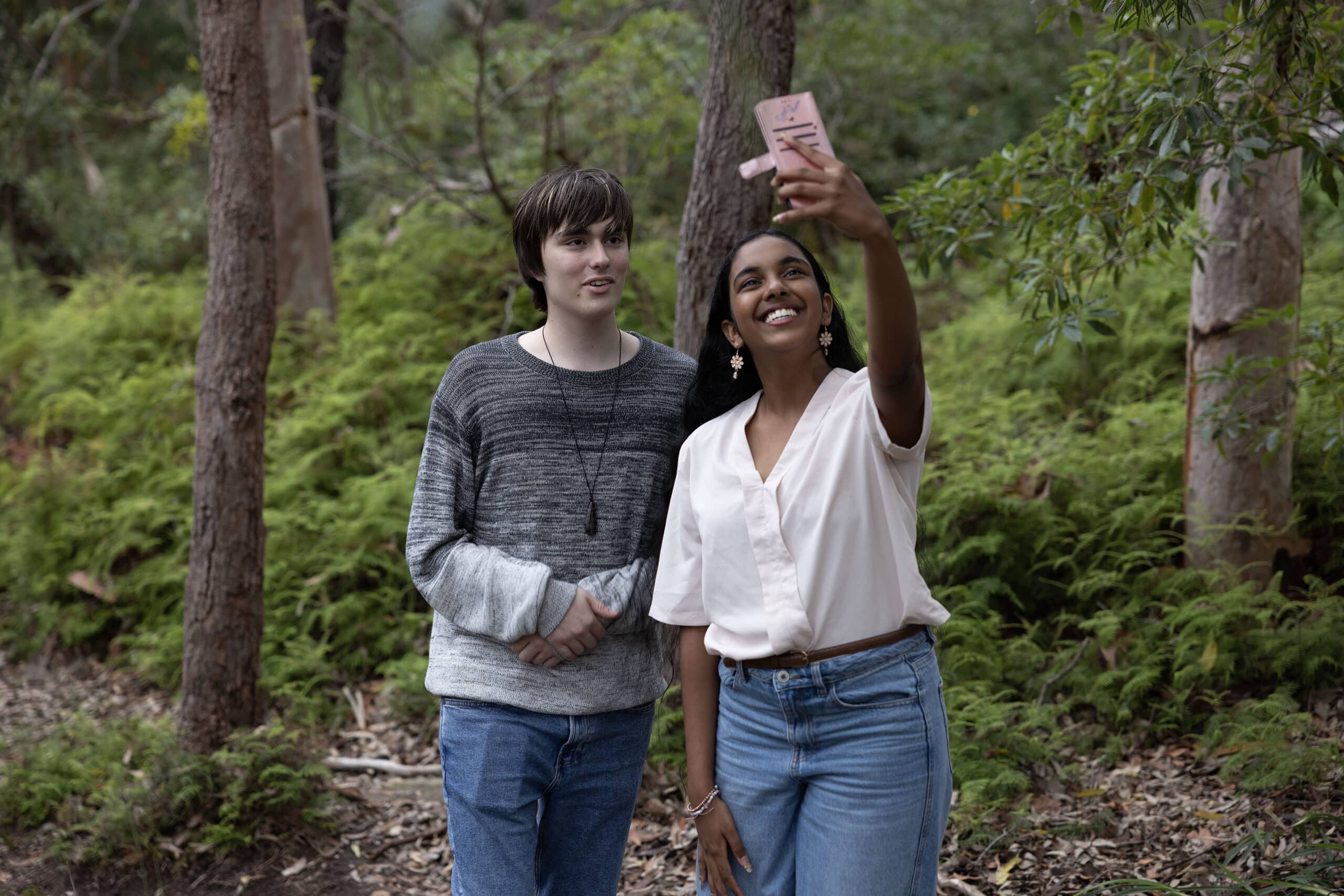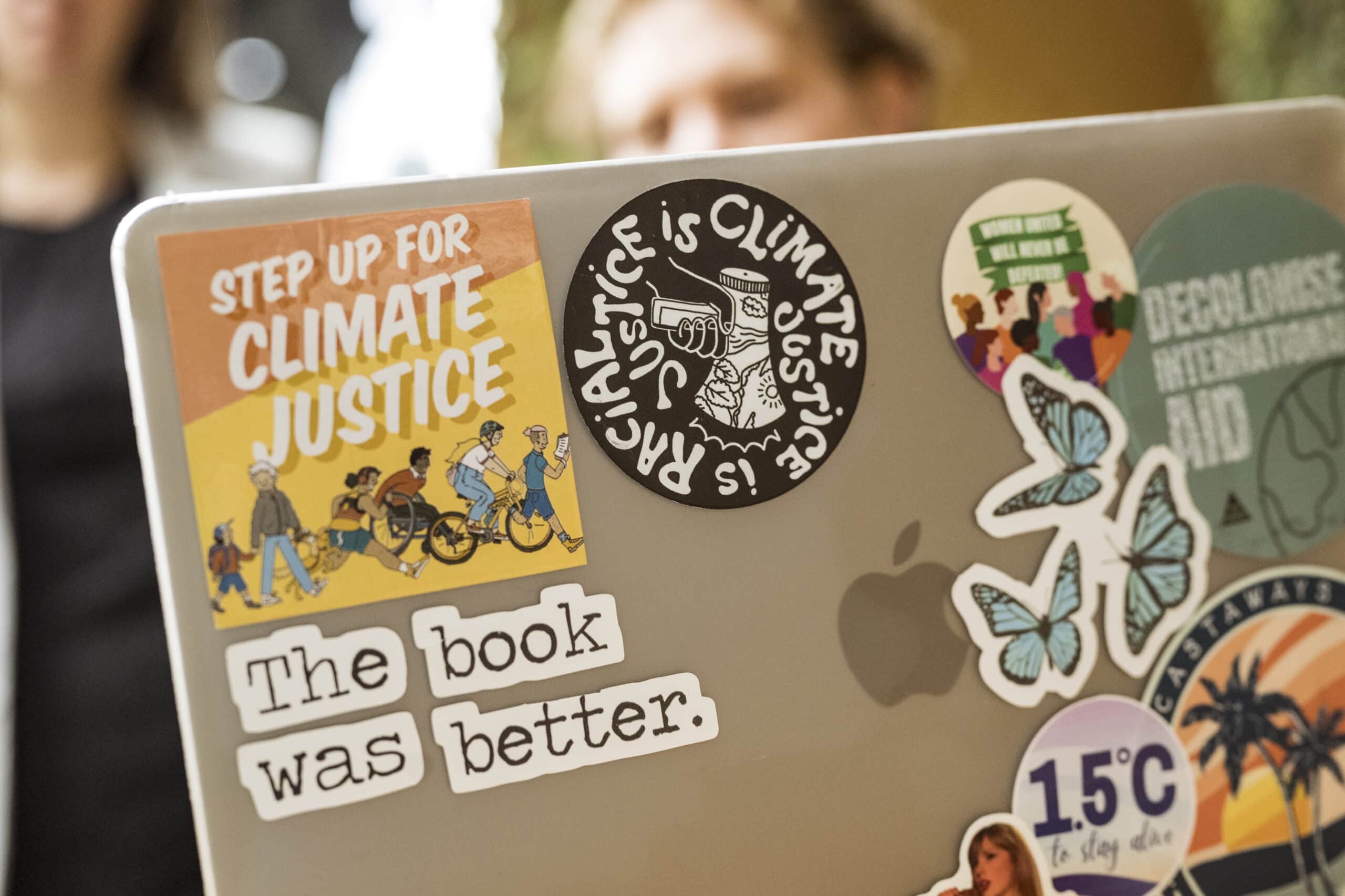By Yehansa Dahanayake
It’s that time again! Get ready for democracy sausages and community conversations as you weigh in on critical issues at the ballot box this May 3rd.
Whilst some voters may see this as ‘just another election’, as climate change continues to worsen, young people like me long to be heard in the conversation about solutions.
For the first time, the 2025 Federal Election sees millennials (aged 29 to 44) and Gen Z—(age 13 to 28) the youngest cohort, make up almost half of voters, outweighing older generations. Young people bear a disproportionate burden when it comes to climate change and its effects, and we will now start to play a heftier role in the political landscape.
Many first-time voters remain disillusioned and confused (I’m sure we’ve all cringed at that Instagram reel of young people being asked who the major politicians are), a growing number of us are demanding change, and uniting to show our power at the highest levels.
Meet Generation Justice
Named “Generation Justice”, I’m one of nine young people who have teamed up with lawyers from Environmental Justice Australia to lodge an official complaint to the UN’s Special Rapporteur on Climate Change. We want to highlight the diverse and localised impacts of climate change as disabled, First Nations, rural and regional, and POC young people, and share our ideas of climate injustice.
Lodged in April this year, we believe this is the first Australian complaint to the Special Rapporteur on Climate Change. We are living through times where Australia remains the second largest fossil fuel exporter internationally and the data says that the burning of fossil fuels causes over 75% of global emissions. Despite Australia’s ongoing export of fossil fuels which are burned all around the world, young people like us are already facing substantial climate impacts. We argue in our complaint that this breaches our human rights which are protected under international law..
Generation Justice calls on the Special Rapporteur on Climate Change, currently Professor Elisa Morgera from Italy, to hold the Australian government accountable, and urge the government to use its power to create meaningful action. We have also requested the Special Rapporteur to come to Australia and hear our stories first hand.
What about the Election?
My name is Yehansa Dahanayake, I’m 16 years old living in the marginal seat of Bennelong. Having family and friends in both Western Sydney and Sri Lanka, I’ve seen the disastrous effects of climate change unfold in both places, and I’m part of this complaint so I can be a voice for not only my own community but for young people all over South Asia.
Marginal seats, like Bennelong, are important in Federal elections because they often play a key role in who wins government. Simply put, parties that win marginal seats win the election, while parties that don’t miss out.
Bennelong is historically a stronghold Liberal seat, home to former Prime Minister John Howard. It sits on a razor-sharp 0.004% margin, with newer candidates eyeing the Labor-held seat. Youth campaigners like those from the Australian Youth Climate Coalition can be spotted everywhere, from restaurants down at Chatswood, to seaside harbours beside Ryde Wharf and tight-knit Eastwood, handing out climate scorecards – a nonpartisan pledge card “grading” political parties from A-F on their climate policies.
Watching this, I feel optimistic. I’ve been a community campaigner for a long time and lobbied local politicians demonstrating that young people who can’t vote are still capable of designing hopeful solutions.
“Whilst I am too young to vote, I know the vitality of youth voice in this election. We are growing and ever present, and deserve to contribute our unique skills, knowledge and solutions to the issues affecting our lifetime.”
The election that determines our future?
Regardless of who wins the election, Australia’s 43% emissions reduction target by 2030 will need a rapid acceleration if it is to be achieved on time.
Whilst governments “drag their feet on climate change” as my fellow co-complainant Maya Farmer says, these intersectional issues are placing pressure on young people, creating an overwhelming feel of uncertainty and eco-anxiety.
Maya states that climate change and the cost of living crisis are “inseparably intertwined”, prompting first-time voters, who are also bearing the stress of cost of living pressures – should consider climate change policies at the ballots.
Growing up on the Northern Coast of NSW, Maya recalls her high school life, punctuated by a series of natural disasters – from the Black Summer bushfires to devastating hailstorms: “Living with climate change is highly stressful, but losing hope is not an option”
Everyday items like coffee, toilet paper and grain have increased in price as the climate change starts to make its impacts on the agriculture industry. Young renters face an increasingly volatile rental market, and prices surge as living expenses soar. Politics continually separates these crises, discussing reforms for cost of living whilst simultaneously approving coal expansions, failing to acknowledge their holistic nature.
It’s up to us as young voters to educate not only ourselves but our parents, friends and communities, considering all these intersectional issues when casting our votes at the ballot box.
Disengaged, disillusioned and disappointed: how young voters fall behind
Generation Justice co-complainant Chris Black says that he and his friends have lost the chance to “just be kids”
Chris, a Year 12 student, studies remotely to manage his disability:“Climate change isn’t some future threat – it’s already impacting my life. I live with anxiety and disabilities that give me a higher risk of climate related harm”.
The inaction of the current government (the legal basis of this case), means young people like Chris feel increasingly disappointed and disengaged with politics.
Groundbreaking research by Western Sydney University on how children respond to climate change finds that young people are angry, disappointed and deeply concerned that their generation bears a disproportionate burden of responsibility to solve climate change. The 49 young people interviewed identify that their eco anxiety is attributed to a feeling similar to the psychological feeling of being abandoned, continually disappointed in the lack of action by older generations.
This rings true for sentiments expressed by Generation justice, with Chris saying “We prepared this complaint during the uninspiring and unambitious Labor government, but our message is even more urgent if a Coalition government gets in”.
The case for 16
Given we are raising our voices on the international stage, should younger people, like me, be able to vote?
The “Make it 16” campaign argues that at age 16 you are given significant autonomy – you can learn to drive, open a bank account, get a job, pay taxes (arguing this is unfair as it is taxation without representation) and join the army. Yet you can’t vote.
It prompts the question, do politicians truly believe young people are incapable of having a say in major discussions? Or are they worried that youth voters would push for more radical policies, holding them accountable in ways older generations do not.
Our laws are supposed to reflect our social values, and so law should adapt to societal and international change when required.
Once upon a time, even the current 18 year old age limit was considered “too young”, – the voting age was 21 when Australia’s Federation was created in 1901.And women were excluded from voting until 1903, with Indigenous women being granted the right to vote in 1962. Internationally, as of 2007, Austrian 16 year olds were granted suffrage. In Brazil, 16-year-olds can vote, without compulsory voting.
Momentously, in 2022 the New Zealand Supreme Court passed a historic judgment ruling that the 18 year-voting age was discriminatory, but goes without legislative implementation.
With a growing number of powerful youth-led movements like the Duty of Care Campaign, Make it 16 and Generation Justice – youth voice, and importantly, youth vote, becomes increasingly indispensable.
Where to now?
Whatever the result of the election, it is vital to ensure young people are wholeheartedly involved in legal and democratic processes in the future, and their rights are protected under international obligations.
The fight for climate justice and the voices of young people never stop – this election is just one important moment in this long-lasting fight.
If you are feeling despondent about the state of the world, try taking a page out of Generation Justice’s book and contribute to something larger than yourself , like the climate crisis.
So, this election as you await your democracy sausage, and show up with friends and family, take this into consideration, Your vote represents not only you, but young people unable to take part.
Please, vote for climate and for us.
Authorised by Yehansa Dahanayake of Sydney, NSW.
